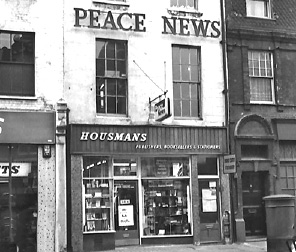The deference which politicians, church leaders and the press pay to pacifism is at once encouraging and humiliating. It is a tribute to the success of [pacifist organisations] in keeping before the community the perennial relevance of the golden rule in personal and national affairs; it rubs in that although we leaven the lump in a variety of ways, nobody seriously believes we could take over from the baker.
In recent years, the pacifists in this country have been at their best in their creative impact on progressive opinion, and much less effective in their official activities. Aldermaston and the direct action movement, numerous societies for social improvement and international friendship, owe their origins to those who insist on personally carrying out their convictions about war and peace.
War resisters are critically important to the future of mankind, and everyone who at any point resists policies threatening nuclear extinction is important to the war resisters’ movement.
However, at its AGM last weekend, the PPU held its annual debate on whether or not to co-operate with the anti-nuclear campaigners and stayed firmly on the fence, [with an insufficient majority to endorse] what most of its members have long since decided, that the nuclear unilateralists have taken a moral and psychological step towards pacifism, even though the political and military implications of their beliefs do not necessarily lead to total disarmament....
In a message to the conference from Berlin, PPU President Michael Tippett looked forward to a future when a sacrificial non-violence movement would flood over the East-West barriers. For the present, the General Secretary had to report that recent setbacks to the project of the World Peace Brigade must be frankly admitted, although the Brigade was a internationally applauded ideal.’


